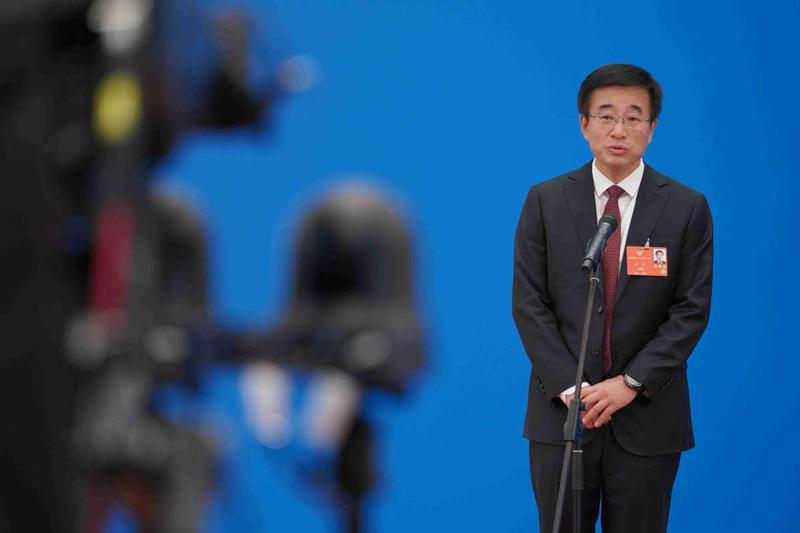 Wang Chen, a member of the 13th National Committee of the Chinese People's Political Consultative Conference, takes part in a news conference on May 21, 2020 via a video linkup at the Great Hall of the People in Beijing. (PHOTO / XINHUA)
Wang Chen, a member of the 13th National Committee of the Chinese People's Political Consultative Conference, takes part in a news conference on May 21, 2020 via a video linkup at the Great Hall of the People in Beijing. (PHOTO / XINHUA)
Medical education and research need to be further strengthened, which is vital to make up for shortfalls in China's public health system as revealed by the COVID-19 epidemic, a political adviser said on Thursday.
"We must establish a mechanism that attracts brilliant talented people to study medicine and provide them with a rigorous education. It is also important to provide them with bright career prospects and give full play to their roles," Wang Chen, a member of the 13th National Committee of the Chinese People's Political Consultative Conference, the top political advisory body, said ahead of the opening of its annual session on Thursday.
In addition to talent cultivation, more efforts are needed to improve research in medicine, said Wang, who is also president of the Chinese Academy of Medical Sciences.
China must take concrete actions to establish a national system on medical science and technology innovation, including building a national-level medical research institute that can lead the medical research of the entire country.
Wang Chen, a member of the 13th National Committee of the Chinese People's Political Consultative Conference
"As has been proved by the epidemic, medicine matters to people's livelihoods, economic development and social security," he said.
"China must take concrete actions to establish a national system on medical science and technology innovation, including building a national-level medical research institute that can lead the medical research of the entire country," he added.
ALSO READ: China looks to improve public health system
To improve the existing public health system, medicine and disease prevention should not be separated, and more importance should be paid to their integration so they can better cope with the challenges posed by major public health emergencies, Wang said.
Wang, a member of the Chinese Academy of Engineering, is one of the top medical experts to have guided epidemic control in Wuhan, Hubei province, the hardest-hit Chinese city by the epidemic. He was a major proposer in the building of more than a dozen temporary hospitals in Wuhan in February at the height of the outbreak, a measure believed to have played a key role in quickly easing the shortage of beds at regular hospitals and isolating all COVID-19 patients in the city.
During the two sessions last year, Wang also suggested increasing investment in medical research in China, which lags behind many developed countries, and improving the career prospects of medical workers to attract the best talents.
While elaborating on the key factors for China's success in containment of the epidemic, Wang said Chinese culture values human health and life, and this has been well reflected in the concerted efforts from across the country in fighting the epidemic.
READ MORE: Xi: Nation cannot afford complacency
Wang Jie, who is also a political adviser, said traditional Chinese medicine played a very important role in fighting the epidemic in China.
While there are no effective drugs for COVID-19 worldwide, TCM therapies have proved effective in treating many COVID-19 patients, said Wang, who is also a chief researcher at the China Academy of Chinese Medical Sciences.
"We used TCM 3,000 years ago, we use it today, and we may continue to use it in the future," he said. "TCM will continue to play a role in clinical treatment as long as it retains its essence and keeps innovating."
wangxiaodong@chinadaily.com.cn


